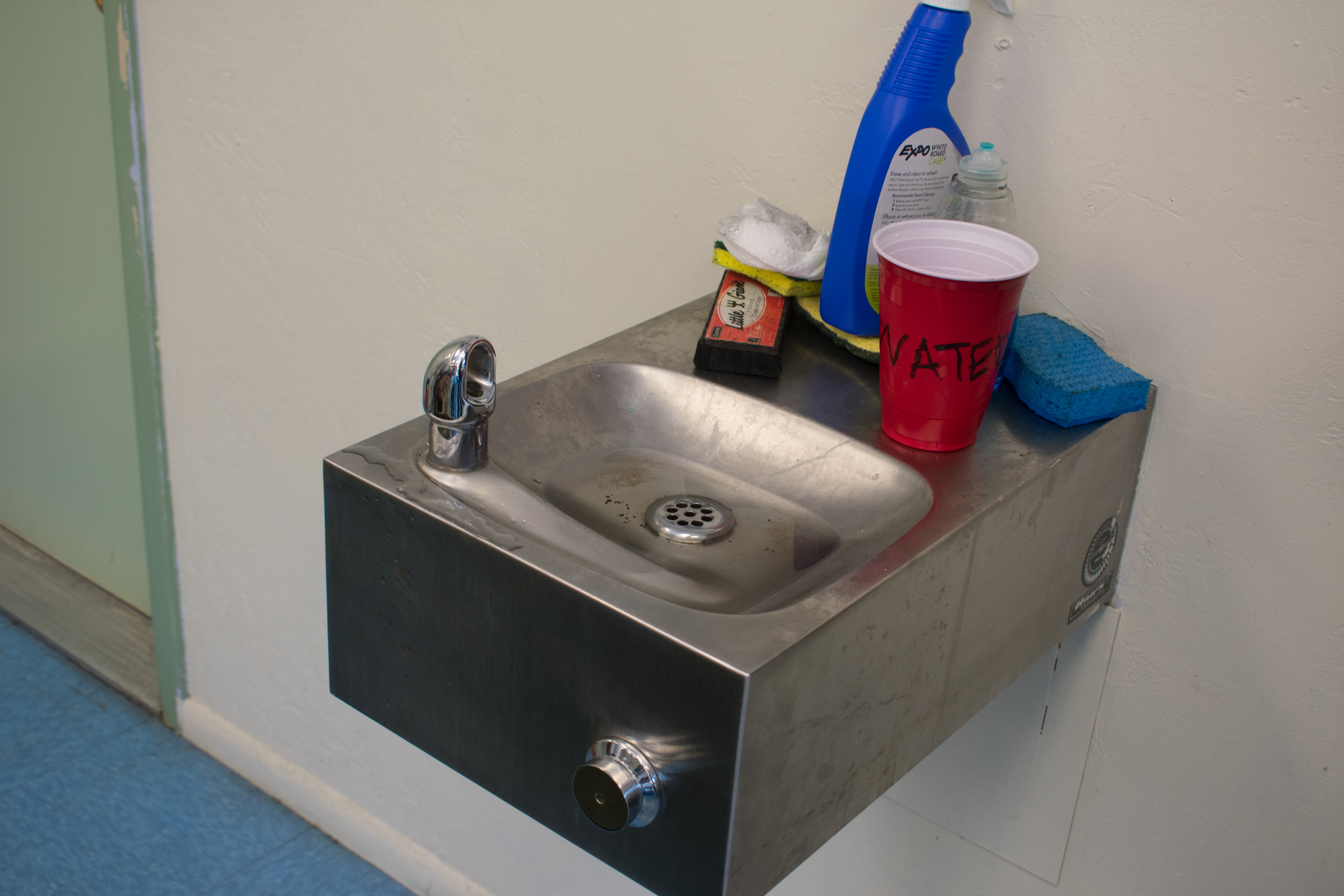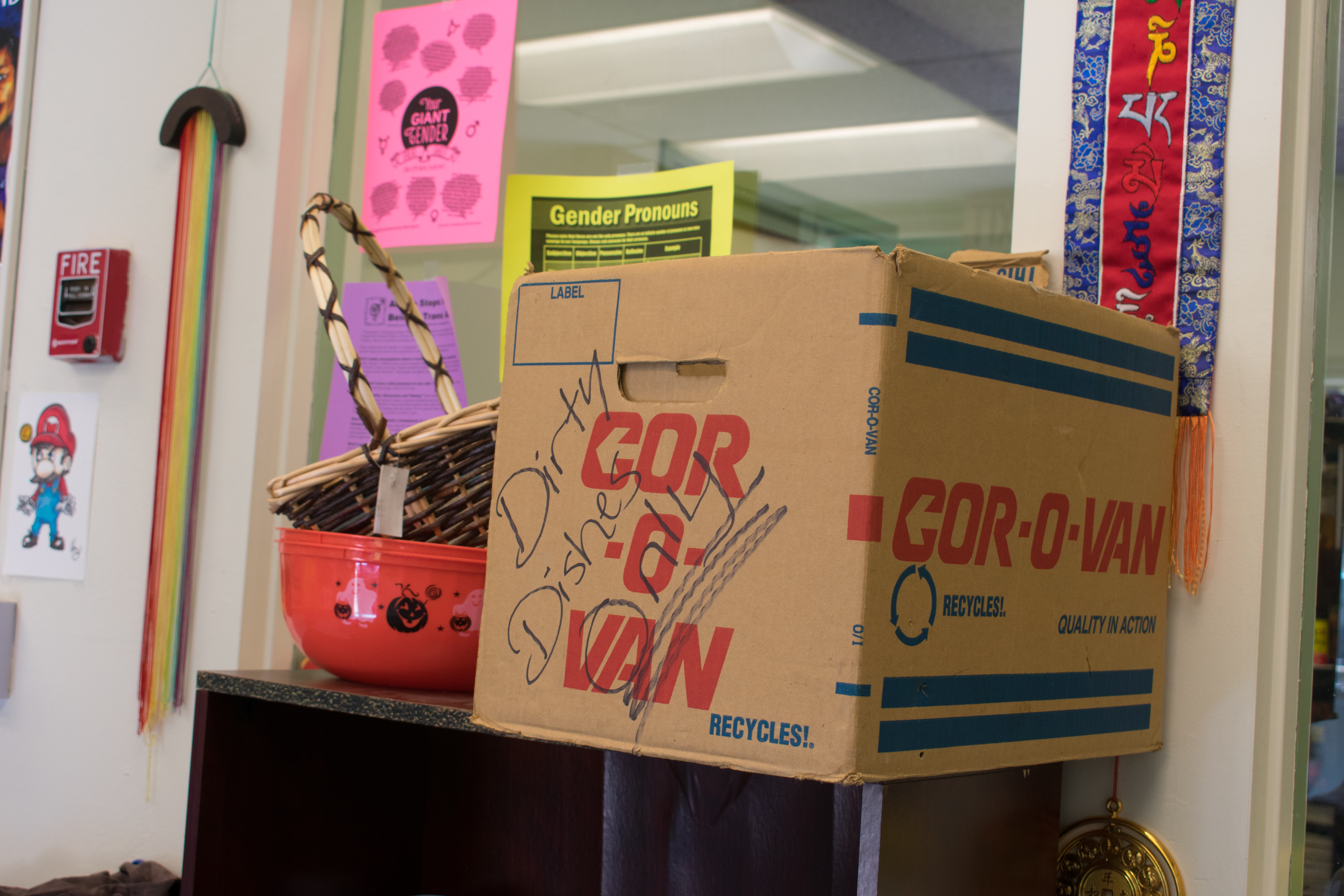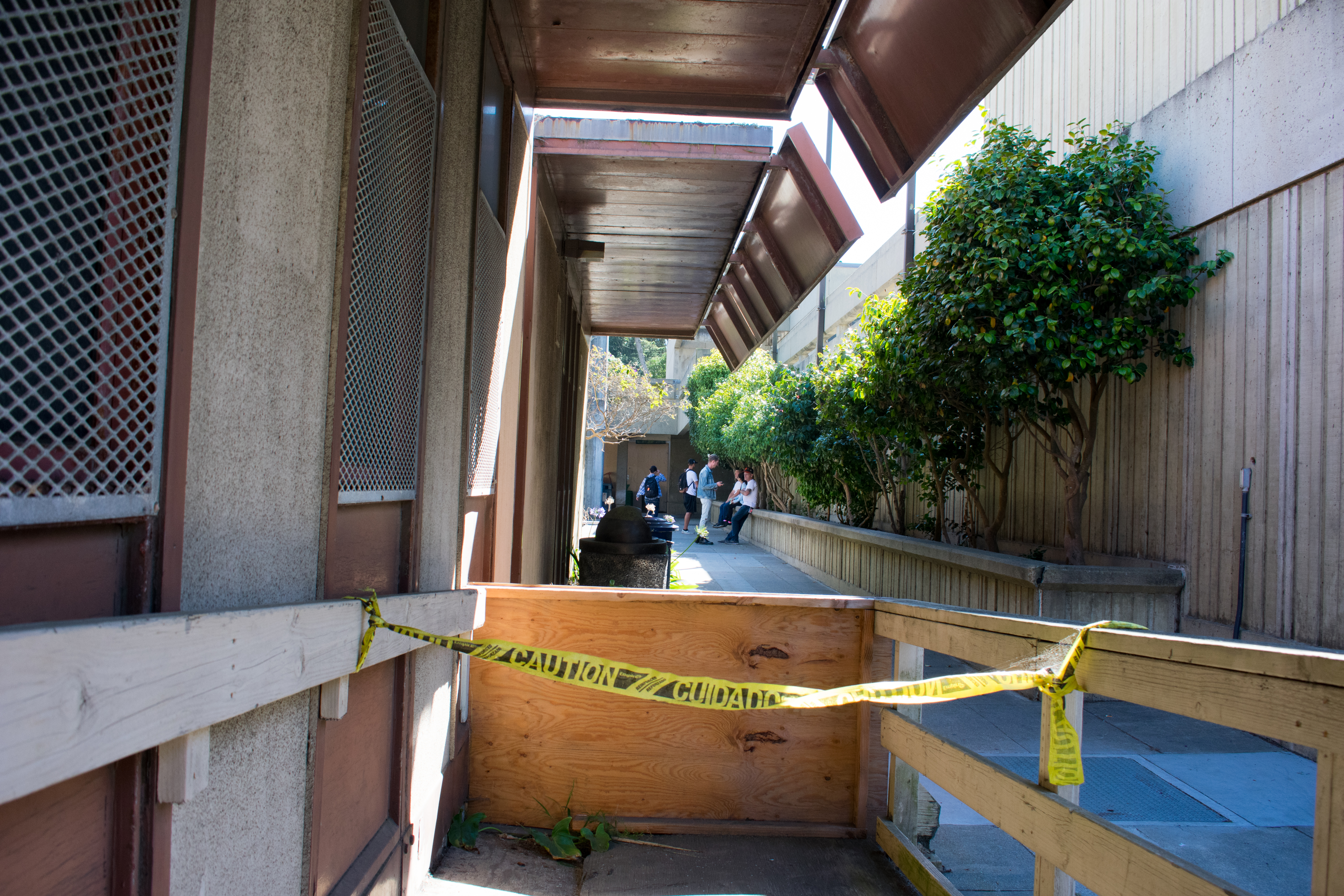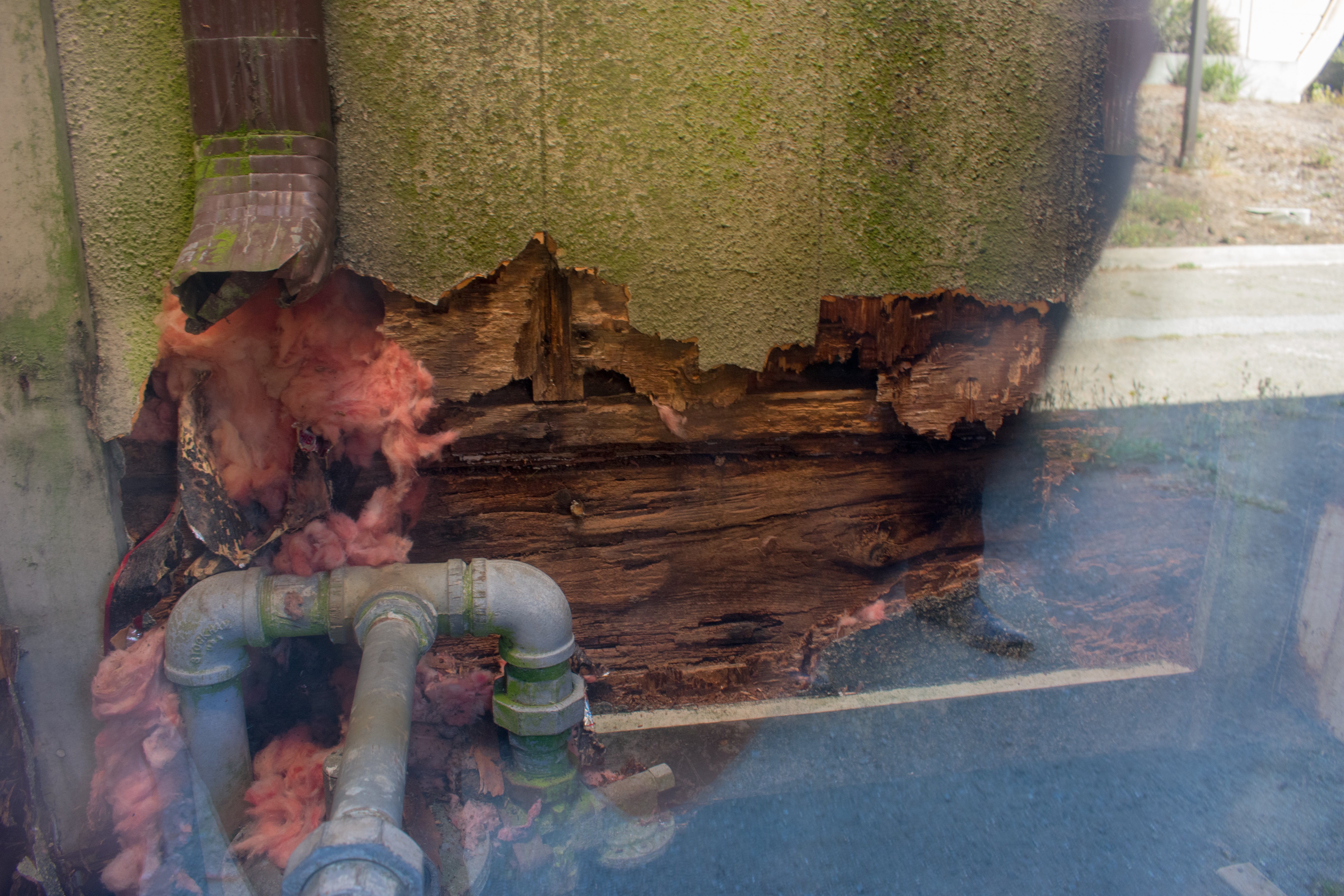Transgender community seeks a safe space on a ‘hostile’ campus
By Quip Johnson
SIDEBAR
Nonbinary people have genders which exists outside of what is referred to as the gender binary, or the concept that only two genders exists: male and female. Many nonbinary people, like Thomas, use gender neutral pronouns, such as “they,” instead of the traditional “he” or “she.”
Transgender people have a gender which differs from the one they were assigned when they were born. Some trans people choose to transition medically, but not all want to or are able to undergo the process. Whether or not they decide to transition has no impact on the legitimacy of a trans person’s gender.
Preferred names are the names a person has chosen for themself in place of their birth name. While not a legally recognized name, many transgender and nonbinary people use their preferred names to avoid being misgendered. People who come from out of the country also use preferred names in place of their international one.
A deadname is the name a transgender person was given at birth, which they no longer use. If a deadname is used to refer to a transgender person and it does not appear to match their appearance or behavior, it can lead to harassment and discrimination. Transgender writer and editor Sam Riedel once called using someone’s deadname without permission “an act of violence” for this reason.
ARTICLE
Chair of Lesbian, Gay, Bisexual, Transgender and Queer Studies Ardel Haefele-Thomas sent an email to City College’s Department Chair Counsel, the Diversity Collaborative and the American Federation of Teachers (AFT) 2121 regarding the safety of campus bathrooms for LGBTQ students at 6 p.m. on Sept. 16.
As a nonbinary transgender professor, Thomas spoke for themself and their students about the harassment and stress attempting to use City College restrooms is causing.
“I am truly, truly at the end of my rope on this,” Thomas wrote. “This is not just about me but an entirely hostile working and learning environment.”
Even after three or more hours of teaching, there are no bathrooms on City College’s Downtown Campus for Thomas to use.
Ocean Campus doesn’t fare much better, with the few gender neutral bathrooms located in isolated places which are difficult to locate, such as the basement of Conlan Hall. To reach the ones in the Wellness Center, a person would first have to pass through one of the two gendered locker rooms. The Multi-Use Building is the only location with multiple, accessible restrooms for any gender.
Due to lack of options, many non binary and transgender students and faculty resort to picking the male or female bathrooms instead, a risky choice which can result in harassment and discrimination.
Thomas shared several anecdotes from students who were mistreated for not fitting others’ perceived gender norms, though they refused to share names to protect the students’ identities.
One of the most memorable incidents on Mission Campus involved a transgender female student being physically forced into the men’s restroom by a police officer. Other students have reported being laughed at and mocked.
The impetus for Thomas’ email was a cisgender lesbian student who was “kicked out” of the women’s restroom “because the custodian did not think she looked like a woman.”
“This isn’t just a problem for our transgender students, but for the whole LGBT community,” Thomas said. “Historically bathrooms have been sites of violence and contestation.”
In September 2016, Governor Jerry Brown signed a bill which said all single-stall restrooms must be labeled as gender neutral. CBS reported he had also approved a measure in 2013 which allows public school students to “use bathrooms that correlate with their gender identity.”
According to TIME Magazine, in 2016, David Campos, San Francisco District Supervisor at the time, passed a bill which made it mandatory to have at least one gender neutral bathroom per floor in new buildings being constructed in San Francisco.
Thomas scoffed at the idea of legislation having much of an effect on treatment of LGBTQ students. “There’s all this red tape from administration. And it just doesn’t matter. I’ve been promised and promised, and I still don’t have a bathroom. It’s demoralizing,” they said.
Thomas has been fighting for transgender rights on City College campuses for over eight years. One of their biggest challenges has been convincing chancellors to approve a preferred name system for administrative and attendance purposes.
“This is about so much more than just bathrooms. I’m just hoping they act as a tipping point,” Thomas said.
Each semester, transgender students are called by their deadnames in class due to the outdated system City College uses. Many universities and institutions, such as the University of California schools, have options for preferred names which will be used for attendance, ID cards and other college documentation barring official paperwork and transcripts.
According to Thomas, City College’s Information Technology Services claims the electronic banner system currently in use won’t allow for the addition of preferred names.
“We’ve been trying to get preferred names on City College campuses for over eight years, and we’re told time and time again, ‘no,’ and ‘it’s impossible,’” Thomas said. “[Chancellor] Susan Lamb said, ‘You want me to spend money to get a new banner system?’ and I said, ‘Can you afford not to?’”
However, under the new administration of Chancellor Mark Rocha, it seems preferred names will be made possible in the near future.
“We sat down and told him what the problem was. He was very upset about what he was hearing…and he called an emergency meeting that same week,” Thomas said. “He sat down with me and said, ‘Okay, Ardel. Tell me. If I’m trans, am I safe on this campus?’ I had to say…if you aren’t passing or you’re nonbinary? No.”
After Thomas and other concerned staff informed the chancellor of transgender student and faculty’s fears, Rocha called an emergency meeting on Sept. 21 to address the issue.
“I have met directly with faculty, staff and student leaders from our LGBQT community to inform them that the administration is taking vigorous steps to implement the use of preferred name and to create all-gender restrooms in all buildings,” Rocha said. “I have gathered a working group to get this done…and to report progress at the Board meeting on October 26th.”
Thomas believes beyond bathrooms and preferred name, there are two major projects City College should tackle to improve conditions for transgender students. “One is, we need better education. When we met with the chancellor, and I am so grateful for him, we didn’t have to educate him. He knew what nonbinary is. He knew what all the terms mean. It was so refreshing….The other thing is we need a space.”
According to Thomas, the third floor of Cloud Hall was promised for the Queer Resource Center (QRC), the LGBTQ Department and counselors. Multiple faculty spoke with Buildings and Grounds, and a walkthrough was even staged. Instead, the space was suddenly given to the Veterans’ Center two weeks before the start of the following semester.
The current QRC resides in a bungalow between Creative Arts and Art Extension. It has no bathrooms or running water and initially had a rat and mold infestation and no heating.
“What sort of message does that send?” Thomas said. “I’m always told, ‘Oh, we aren’t transphobic and homophobic. This is San Francisco. This is City College.’ Yes. Yes, you are.”

(AP Photo/ Julia Fuller)



The rodent infestation and mold has eaten away at the old buildings and left the foundation and fiberglass for students to see. October 17, 2017. Many work orders have been placed by various teachers throughout the Bungalows and Art Extension. (AP Photo / Julia Fuller)
